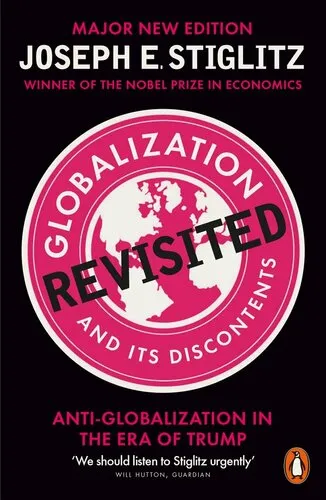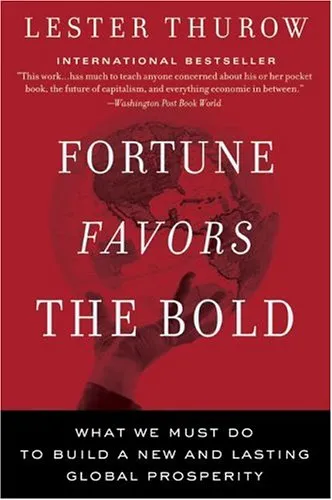Globalization and Its Discontents Revisited: Anti-Globalization in the Era of Trump
4.5
Reviews from our users

You Can Ask your questions from this book's AI after Login
Each download or ask from book AI costs 2 points. To earn more free points, please visit the Points Guide Page and complete some valuable actions.Related Refrences:
Introduction to 'Globalization and Its Discontents Revisited: Anti-Globalization in the Era of Trump'
Written by Nobel Prize-winning economist Joseph Stiglitz, "Globalization and Its Discontents Revisited: Anti-Globalization in the Era of Trump" critically analyzes the effects of globalization, which have become more pronounced and contentious in recent times, especially in the context of political shifts such as the election of Donald Trump.
Detailed Summary of the Book
In "Globalization and Its Discontents Revisited," Stiglitz revisits themes from his groundbreaking 2002 book, adding fresh insights into the economic and political forces shaping globalization today. Stiglitz explores the growing disillusionment with global economic policies, particularly those championed by institutions like the International Monetary Fund (IMF) and the World Bank. He delves into the disparity between promises and realities of globalization, emphasizing how policies often favor developed nations at the expense of poorer countries. This revised edition emphasizes the new wave of anti-globalization sentiment, highlighting how policies enacted in the Trump era have amplified discontent. Stiglitz critically examines the effects of tariffs, immigration policies, and nationalist economic agendas, arguing that rather than addressing the root issues of inequality and impoverishment, they exacerbate these problems.
Throughout the book, Stiglitz advocates for a form of globalization that is equitable and beneficial for all. He calls for reforms that prioritize sustainable development, greater transparency, and enhanced social protections. By analyzing case studies and providing a wealth of empirical evidence, Stiglitz presents a compelling case for revisiting and revising global economic policies to create an inclusive global economy.
Key Takeaways
- Reassessment of Globalization: Stiglitz argues for a nuanced understanding of globalization, acknowledging its potential benefits while critiquing its failures.
- Impact of Political Shifts: The book examines how populist politics and protectionist policies challenge traditional globalization models.
- Need for Reform: Stiglitz presents a strong case for reforming international economic institutions to ensure fair and sustainable development.
- Emphasis on Equity: A call to prioritize social equity and environmental sustainability in global economic policies.
Famous Quotes from the Book
"Globalization is supposed to be a means to an end—a way to promote economic prosperity and increase well-being. But in too many countries, it has become an end in itself."
"When globalization is made only to serve the interests of the few, it is bound to be resisted."
Why This Book Matters
This book is crucial for understanding the evolving narrative of globalization, particularly in a rapidly changing political landscape. By providing a critical analysis of globalization, Stiglitz offers valuable insights for policy-makers, economists, and global leaders. The book underscores the importance of developing a more equitable global system, one that addresses the disparities and inequities that have fueled the anti-globalization movement. In "Globalization and Its Discontents Revisited," Stiglitz presents a clear roadmap for fostering responsible economic globalization in a way that benefits all segments of society, thus making an essential read for anyone interested in the future of global economic policy.
Free Direct Download
You Can Download this book after Login
Accessing books through legal platforms and public libraries not only supports the rights of authors and publishers but also contributes to the sustainability of reading culture. Before downloading, please take a moment to consider these options.
Find this book on other platforms:
WorldCat helps you find books in libraries worldwide.
See ratings, reviews, and discussions on Goodreads.
Find and buy rare or used books on AbeBooks.
1576
بازدید4.5
امتیاز0
نظر98%
رضایتReviews:
4.5
Based on 0 users review
Questions & Answers
Ask questions about this book or help others by answering
No questions yet. Be the first to ask!

















